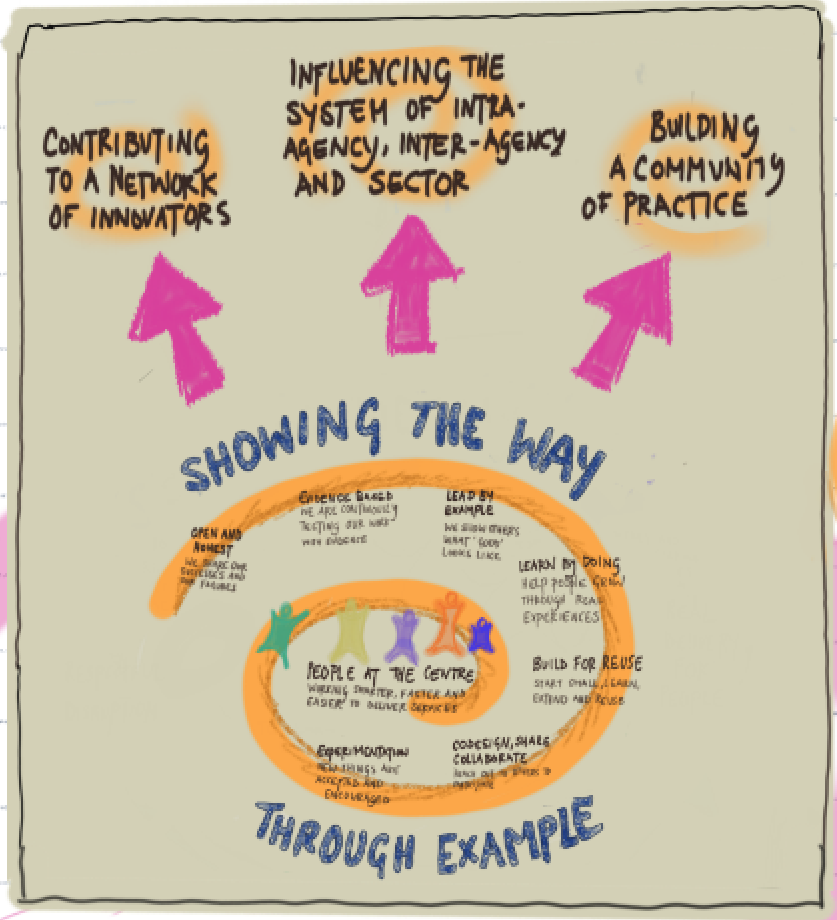Background
Staying tight on principles and holding process more lightly helped the team stay true to its purpose and enabled the team to adapt and iterate its approach.
Principles to guide the work
Eight principles have guided the Lab’s cross agency work since 2017. They are reflected throughout the Lab’s work and across the project stories.
- Uniting to meet user needs
- Doing the hard things to make it easy
- Learning and improving rapidly
- Proving value or stopping
- Doing the least for the greatest impact
- Building for reuse and openness
- Accepting help and challenge
- Openly and widely talking about our work
Mindsets for joined up working
One of the lab’s key roles was to ‘enable a culture of experimentation and adaptiveness’. Often this meant encouraging and modelling different ways to think about and approach the work. Below are some of the mindsets that can both help and get in the way of working differently.
Mindsets that support the work
- Trusting and empowering - Creating space for people to work together requires trust. It means working with integrity - walking our talk.
- Humility and patience - A collaborative approach means valuing all contributions and starting where people are at.
- Empathy, put people at the centre - Seeking to understand what the system looks like from their perspective wherever they sit.
- Curiosity, courage and creativity - Being open to exploring new ideas and possibilities, and finding ways to explore them with others.
- Thinking like a system - Staying focused on the issues but taking time to identify connections, relationships with other areas.
- Open and adaptive - A growth mindset supports exploring and trying new things - building on learning and experience.
Mindsets that can hold us back the work
- Expedience and quick wins - Seeking simple solutions to complex challenges can reinforce short-term thinking.
- Fixed mindset - Holding a narrow view of ourselves and others reduced our openness to collaborative approaches, new knowledge and think creatively.
- What’s in it for me? - Territorial / siloed thinking makes collaborative working harder, with win/win opportunities missed.
- Fear of failure - Can sit at a personal, team and organisational level and foster a tacit and explicit resistance to new ideas.
- Solutionism and perfectionism - For complex challenges that involve a range of agencies there may not be a single ‘solution’ and the work will be ongoing.
- Insider / outsider mindsets - Losing the balance between working with the system that hosts it and offering positive challenge and disruption.


